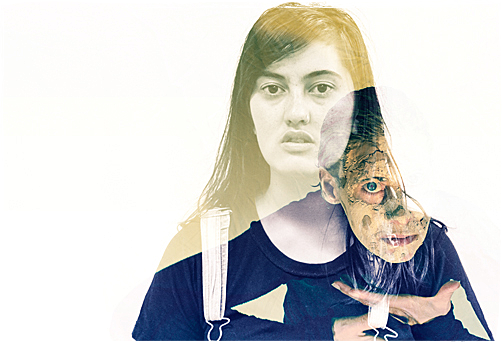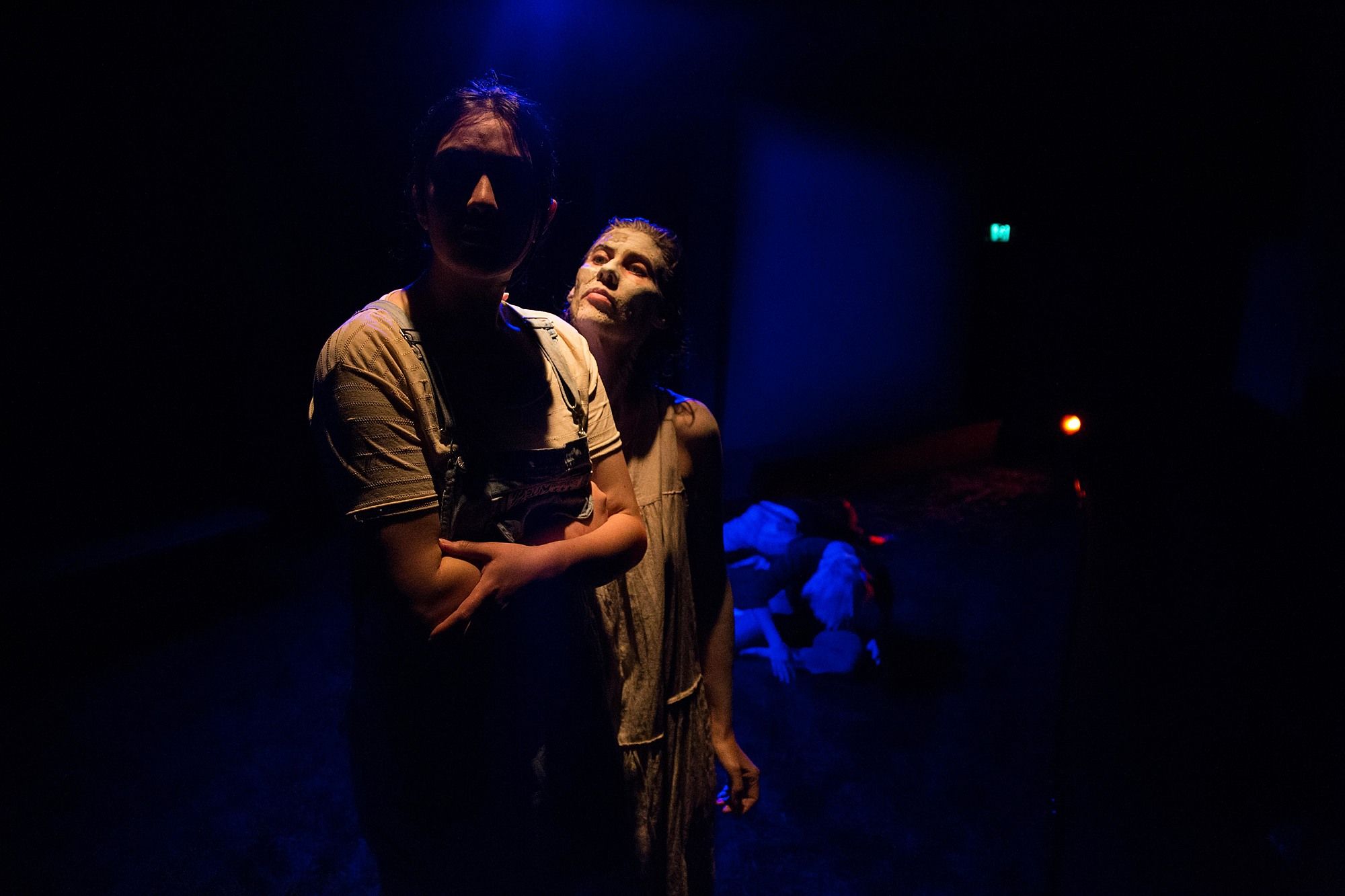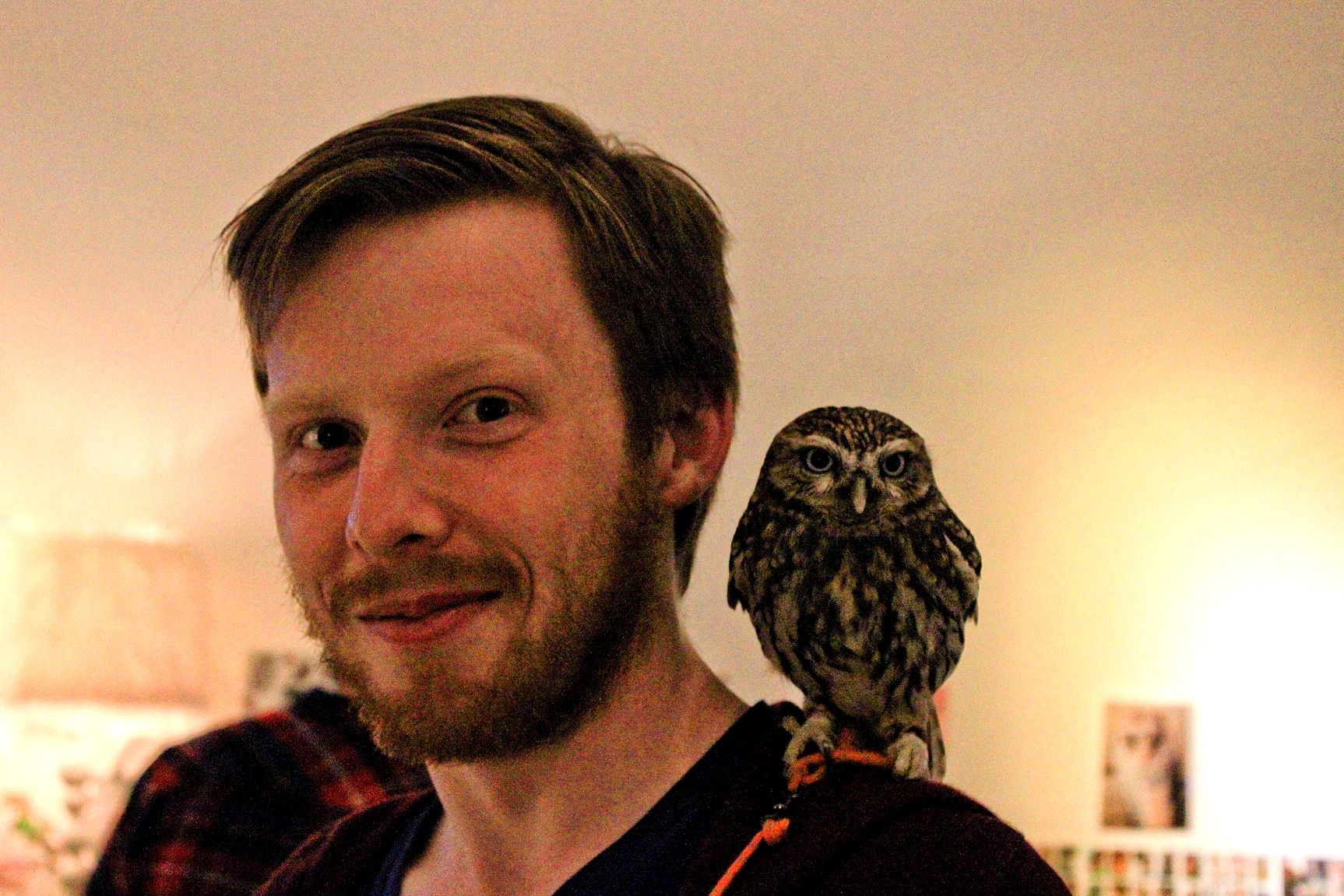Review: The Fence
Adam Goodall reviews The Fence, a quiet and quietly affecting blend of coming-of-age drama and ghost story premiering at BATS Theatre.
Adam Goodall reviews The Fence, a quiet and quietly affecting blend of coming-of-age drama and ghost story premiering at BATS Theatre.
Suzi is sixteen and watching cars speed through the town she’s never been able to leave, getting angry at the drivers going over the 70 kilometre speed limit (but not really getting angry at them for that). She’s restless and lonely and so familiar to people like me, kids who grew up in forced exile on farms and in fly-by State Highway townships: your Waimates, Waipawas, Waiourus. So many of us spent our teens in crossroad towns, one eye on the exit and the other on everyone stuck with you. Suzi’s no different.
She’s also the centre around which everything orbits in The Fence, a quiet coming-of-age drama-cum-ghost story from Brothers & Sisters Collective. A high-school dropout abandoned by her father, stuck living with her Aunty (Sabrina Martin) on an isolated rural block, she’s acutely aware that everyone in her life relies on her and expects things of her. She doesn’t want to be that person, though, trapped by endless hills and fenceposts that constantly need fixing. (The set is a wooden farmhouse on a dewy field made of real grass, a quietly brilliant wrinkle in Gary French’s set design that makes the whole space smell like an early autumn night in the middle of nowhere.) She doesn’t want to be here, and everyone knows it.
Neenah Dekkers-Reihana plays that wanderlust as a melancholy that hangs over everything. She’s half-distracted in every conversation, staring off into the middle distance and answering every question as if “I don’t know” would be a better-fitting substitute. Suzi’s stuck being lost, held in place by all the anchors in her life, and Dekkers-Reihana gives a thoughtful and honestly-felt performance that, for the most part, keeps that feeling squarely in the foreground.
Of those anchors, Tomo (Joe Dekkers-Reihana) is the most interesting and given the most interesting life. Reliant on Suzi for emotional security, Tomo’s a highly physical counterpoint to his sister’s stillness and hesitance. Dekkers-Reihana fries his voice, works weird stresses into his dialogue, runs around with flailing arms one moment and crunches up into a rigid, impervious slouch in the next. Dekkers-Reihana complements Suzi by playing off her weariness, making himself more open, more vulnerable, more needy.
The Fence is at its best when it dwells on the frustration Suzi feels at being made responsible for this land and all the people and ghosts that come with it, through the odd jobs she’s made to do on the farm and through hers and Tomo’s connection to the well.
Aunty, Polly (Elle Wootton) and Jarrod (Michael Trigg) all need Suzi, too. Aunty needs her for labour; Polly, her best and possibly only friend, needs her for reinforcement; Jarrod, her on-again off-again boyfriend, needs her to hold him down and stop him from spiralling off into the ether. Writer Fran Olds (who pulls double-duty as co-director with choreographer Luke Hanna) carefully draws out their expectations, demands and fuck-ups through slow, patiently-paced conversations, most of which peak when Tomo, Aunty, Polly and Jarrod push those things on to Suzi. They leave their issues at her door because there’s nowhere else to put them, as far as they can see.
Aunty, Polly and Jarrod don’t break out from this dimension much. Martin’s miscast as Aunty; she gamely throws her all into the stern, no-nonsense caregiver, but she doesn’t have the gravitas or the burden of memory that the role sorely needs. Trigg and Wootton are respectively muted and over-emphatic as Jarrod and Polly, filling out Suzi’s limited world and occasionally breaking beyond that with moments of viciousness and understated joy.
The heaviest anchor, though, is Suzi’s past. On the surface, The Fence looks like a small play, reminiscent of Hone Kouka’s The Prophet in its scope and concerns. But like The Prophet, it ambitiously distorts that first impression when it turns its eye to the full weight of Suzi and Tomo’s history and identity they draw from it. Olds blurs reality and myth through the story of Ko Rona me te Marama, a Māori legend about a woman who storms off into the night after an argument with her husband; the woman trips in the night and curses the Moon, which the Moon reprimands her for, and when she continues to curse the Moon, it hauls her into the sky. Olds blends this legend into Suzi and Tomo’s backstory, tying their personal ghosts – and a well on the farm – to a story of cultural significance. In so doing, Olds adds a further layer to The Fence’s exploration of what it means to relate to a piece of land as ‘home’ and the baggage that comes with that label.
Olds and Hanna push the mythical connection further with jagged interludes where Rona – played by Maria Dabrowska, dressed in a loose-fitting beige dress and her face half-covered in dried mud – moves under the blue light of the moon like she’s fighting a possession. Sound designer Jason Wright underlines these scenes with a grinding, overwhelming post-rock score, drowning out everything except the land and Rona’s drifting, jerking across it. Between interludes, she watches Suzi and Tomo from a ladder and descends, occasionally, to linger around them, observing and supporting them without their knowing, a ghost of the past that keeps them tied to the land.
The Fence is at its best when it dwells on the frustration Suzi feels at being made responsible for this land and all the people and ghosts that come with it, through the odd jobs she’s made to do on the farm and through hers and Tomo’s connection to the well. It’s a slow-burn that Neenah Dekkers-Reihana manages by never striking too quiet or too loud until near the end, but structurally it crosses the line into elliptical and anti-dramatic a few too many times. Tomo’s disappearance for several days is resolved as quickly as it happens, tied off with an anticlimactic line from Aunty about how “He’s in his room now”. The ending, too, is abrupt to a fault, the final scene outlining Suzi and Tomo’s arcs then dropping the lights without warning. These kinds of moments cut through The Fence’s hazy rhythm, speeding the narrative along and tying up loose thematic threads in a way that dilutes their emotional impact.
Similarly, the play’s big scenic setpiece - that wooden farmhouse, with a back-lit sheet that lets us see what’s happening inside the house in silhouette - waters down Suzi’s isolation by drowning one half of the stage in bland yellow light. It’s most pronounced during the night scenes, particularly when Suzi’s delivering one of her irregular monologues under lighting designer Glenn Ashworth’s chilly blue lights. This brightly-lit house with its crystal-clear silhouettes constantly reminds us that there are other people around. It’s an intrusive presence in Suzi’s life, even when she feels like she’s drifting in nothingness.
As someone who grew up in a small town like the one in The Fence, who had friends who grew up on rural blocks like this, Fran Olds’ play jacks straight into that familiar, intense feeling of needing to escape, of feeling like you don’t belong here and that the only thing keeping you here is other people. More than that, though, it’s a deft and low-key attempt at unpacking those things that tie you to your home, both the ways they unintentionally pull you down and the ways that they’re important, vital to your life. It’s not quite as elegant and confident a piece of drama as it could be, but Olds has made a strong and intelligent debut that, given space and time to grow, could be spectacular.
The Fence runs at
BATS Theatre, Wellington
from Friday 16 September to Saturday 24 September
For tickets to and more information about The Fence, go here.


